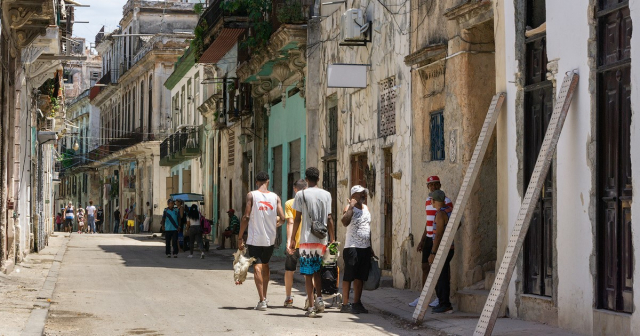During a live broadcast in the mornings of CyberCuba, the prominent Cuban intellectual Orlando Luis Pardo Lazo addressed a question that resonates in the nation's collective memory: Why was Christmas taken away from us in Cuba? His analysis provides a deep perspective on this key episode in Cuban history.
Pardo Lazo began his dissertation by pointing out that the origin of this cultural transformation dates back to the establishment of communism on the island. However, he focused his analysis on a specific moment: Fidel Castro's speech on January 2, 1969. In this speech, Castro presented what seemed to be a temporary measure, linked to the 10 million Zafra, an ambitious project to boost the Cuban economy.
The intellectual highlighted the peculiar nature of Fidel Castro as an orator. "He didn't make speeches; he talked with the people," said Pardo Lazo, highlighting how Castro, through a colloquial and humorous tone, managed to communicate significant changes in Cuban tradition and politics.
According to Pardo Lazo, Castro used the metaphor of "becoming like children" to justify the suspension of Christmas celebrations. The reason given was that, given the focus on the Zafra and the need to 'remove the country from underdevelopment', it was not prudent to 'demobilize the workers'. Thus, the extended family of the revolution took priority over traditional family gatherings.
The speaker also noted the irony that the suspension of Christmas, initially presented almost as a joke, became an official decree. As time went by, celebrating Christmas in Cuba became a counterrevolutionary act, a stigma that persisted until the visit of Pope John Paul II in 1998.
Pardo Lazo did not limit himself to narrating the events, but also addressed the social and cultural repercussions of this decision. In the 1960s, many families faced persecution and social exclusion for maintaining Christmas traditions, a clear manifestation of how the government sought to replace religious and cultural identity with revolutionary ideology.
The analysis concluded by reflecting on how, after six decades, neither the development promised by Castro's 'machines' nor the stolen traditions have been rescued. Pardo Lazo closed with a powerful symbolic image: a graffiti representing the three Wise Men, highlighting the inclusion of a black King, in a clear nod to the diversity and history of the nation.
What do you think?
COMMENTFiled in:
